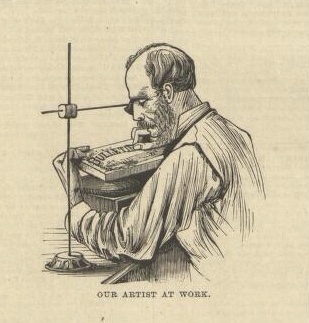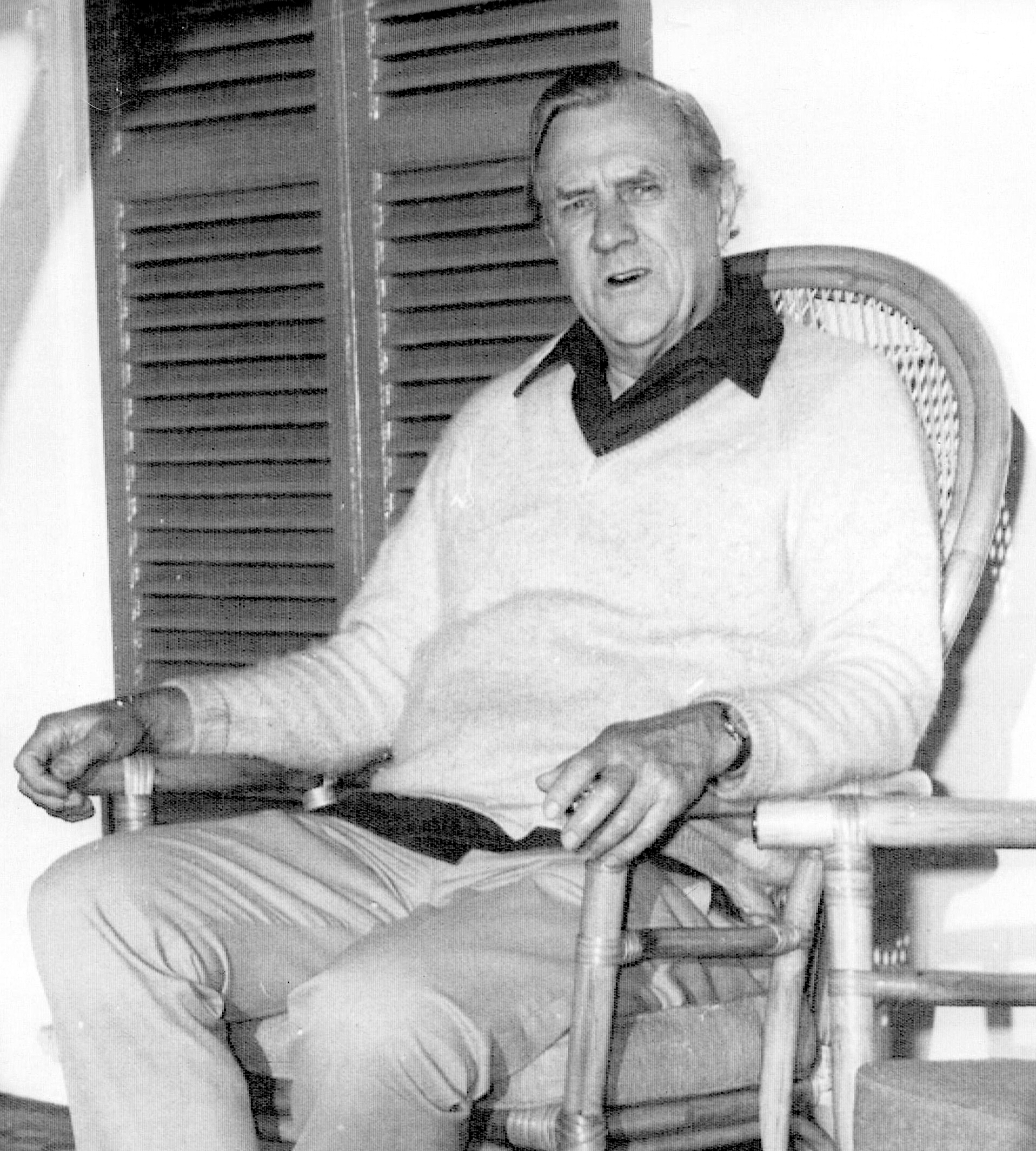|
In Defence Of The Bush
''In Defence of the Bush'' is a popular poem by Australian writer and poet Andrew Barton "Banjo" Paterson. It was first published in '' The Bulletin'' magazine on 23 July 1892 in reply to fellow poet Henry Lawson's poem, '' Up The Country.'' Paterson's rebuttal sparked the Bulletin Debate, a series of poems by both Lawson and Paterson about the true nature of life in the Australian bush. In '' Up The Country,'' Lawson had criticised "The City Bushman" such as Banjo Paterson who tended to romanticise bush life. Paterson, in turn, accused Lawson of representing bush life as nothing but doom and gloom, famously ending with the line ''"For the bush will never suit you, and you'll never suit the bush."'' Wikisource article - ''In Defence of the Bush'' by Banjo Paterson See also * 1892 in poetry * 1892 in literature * Australian literature Australian literature is the written or literary work produced in the area or by the people of the Commonwealth of Australia and its precedi ... [...More Info...] [...Related Items...] OR: [Wikipedia] [Google] [Baidu] |
Australia
Australia, officially the Commonwealth of Australia, is a Sovereign state, sovereign country comprising the mainland of the Australia (continent), Australian continent, the island of Tasmania, and numerous List of islands of Australia, smaller islands. With an area of , Australia is the largest country by area in Oceania and the world's List of countries and dependencies by area, sixth-largest country. Australia is the oldest, flattest, and driest inhabited continent, with the least fertile soils. It is a Megadiverse countries, megadiverse country, and its size gives it a wide variety of landscapes and climates, with Deserts of Australia, deserts in the centre, tropical Forests of Australia, rainforests in the north-east, and List of mountains in Australia, mountain ranges in the south-east. The ancestors of Aboriginal Australians began arriving from south east Asia approximately Early human migrations#Nearby Oceania, 65,000 years ago, during the Last Glacial Period, last i ... [...More Info...] [...Related Items...] OR: [Wikipedia] [Google] [Baidu] |
Banjo Paterson
Andrew Barton "Banjo" Paterson, (17 February 18645 February 1941) was an Australian bush poet, journalist and author. He wrote many ballads and poems about Australian life, focusing particularly on the rural and outback areas, including the district around Binalong, New South Wales, where he spent much of his childhood. Paterson's more notable poems include " Clancy of the Overflow" (1889), "The Man from Snowy River" (1890) and "Waltzing Matilda" (1895), regarded widely as Australia's unofficial national anthem. Early life Andrew Barton Paterson was born at the property "Narrambla", near Orange, New South Wales, the eldest son of Andrew Bogle Paterson, a Scottish immigrant from Lanarkshire, and Australian-born Rose Isabella Barton, related to the future first Prime Minister of Australia Edmund Barton. Paterson's family lived on the isolated Buckinbah Station near Yeoval NSW until he was five when his father lost his wool clip in a flood and was forced to sell up. When P ... [...More Info...] [...Related Items...] OR: [Wikipedia] [Google] [Baidu] |
The Bulletin (Australian Periodical)
''The Bulletin'' was an Australian weekly magazine first published in Sydney on 31 January 1880. The publication's focus was politics and business, with some literary content, and editions were often accompanied by cartoons and other illustrations. The views promoted by the magazine varied across different editors and owners, with the publication consequently considered either on the left or right of the political spectrum at various stages in its history. ''The Bulletin'' was highly influential in Australian culture and politics until after the First World War, and was then noted for its nationalist, pro-labour, and pro-republican writing. It was revived as a modern news magazine in the 1960s, and after merging with the Australian edition of Newsweek in 1984 was retitled ''The Bulletin with Newsweek''. It was Australia's longest running magazine publication until the final issue was published in January 2008. Early history ''The Bulletin'' was founded by J. F. Archibald and ... [...More Info...] [...Related Items...] OR: [Wikipedia] [Google] [Baidu] |
Henry Lawson
Henry Archibald Hertzberg Lawson (17 June 1867 – 2 September 1922) was an Australian writer and bush poet. Along with his contemporary Banjo Paterson, Lawson is among the best-known Australian poets and fiction writers of the colonial period and is often called Australia's "greatest short story writer". A vocal nationalist and republican, Lawson regularly contributed to '' The Bulletin'', and many of his works helped popularise the Australian vernacular in fiction. He wrote prolifically into the 1890s, after which his output declined, in part due to struggles with alcoholism and mental illness. At times destitute, he spent periods in Darlinghurst Gaol and psychiatric institutions. After he died in 1922 following a cerebral haemorrhage, Lawson became the first Australian writer to be granted a state funeral. He was the son of the poet, publisher and feminist Louisa Lawson. Family and early life Henry Lawson was born 17 June 1867 in a town on the Grenfell goldfields of ... [...More Info...] [...Related Items...] OR: [Wikipedia] [Google] [Baidu] |
Bulletin Debate
The "''Bulletin'' Debate" was a well-publicised dispute in '' The Bulletin'' magazine between two of Australia's best known writers and poets, Henry Lawson and Banjo Paterson. The debate took place via a series of poems about the merits of living in the Australian "bush", published from 1892 to 1893. Origin At the time, '' The Bulletin'' was a popular and influential publication, and often supported the typical national self-image held by many Australians, sometimes termed the "bush legend."Lawson and ''The Bulletin'' Henry Lawson: Australian Writer, Australian Government Culture and Recreation Portal, Accessed on 7 November 2006 Many Australian writers and poets, such as |
The City Bushman
''The City Bushman'' is a poem by iconic Australian writer and poet Henry Lawson. It was first published in '' The Bulletin'' magazine on 6 August 1892, under the title ''In Answer to "Banjo", and Otherwise''. It was the fourth work in the Bulletin Debate, a series of poems by both Lawson and Andrew Barton "Banjo" Paterson, and others, about the true nature of life in the Australian bush. In ''The City Bushman,'' Lawson responds to Paterson's poem, '' In Defence of the Bush'', quoting a number of phrases, and criticising each in turn. Wikisource article – ''In Defense of the Bush'' by Banjo Paterson See also * 1892 in poetry * 1892 in literature * 1892 in Australian literature * Australian literature Australian literature is the written or literary work produced in the area or by the people of the Commonwealth of Australia and its preceding colonies. During its early Western history, Australia was a collection of British colonies; as such, ... References {{DEF ... [...More Info...] [...Related Items...] OR: [Wikipedia] [Google] [Baidu] |
In Defense Of The Bush
''In Defence of the Bush'' is a popular poem by Australian writer and poet Andrew Barton "Banjo" Paterson. It was first published in '' The Bulletin'' magazine on 23 July 1892 in reply to fellow poet Henry Lawson's poem, '' Up The Country.'' Paterson's rebuttal sparked the Bulletin Debate, a series of poems by both Lawson and Paterson about the true nature of life in the Australian bush. In '' Up The Country,'' Lawson had criticised "The City Bushman" such as Banjo Paterson who tended to romanticise bush life. Paterson, in turn, accused Lawson of representing bush life as nothing but doom and gloom, famously ending with the line ''"For the bush will never suit you, and you'll never suit the bush."'' Wikisource article - ''In Defence of the Bush'' by Banjo Paterson See also * 1892 in poetry * 1892 in literature * Australian literature Australian literature is the written or literary work produced in the area or by the people of the Commonwealth of Australia and its precedi ... [...More Info...] [...Related Items...] OR: [Wikipedia] [Google] [Baidu] |
1892 In Poetry
Nationality words link to articles with information on the nation's poetry or literature (for instance, Irish or France). Events * William Butler Yeats founds the National Literary Society in Dublin. Works published Australia United Kingdom * A. C. Benson, ''Le Cahier Jaune''Cox, Michael, editor, ''The Concise Oxford Chronology of English Literature'', Oxford University Press, 2004, * Wilfred Seawen Blunt, ''Esther, Love Lyrics, and Natalia's'' * Austin Dobson, ''The Ballad of Beau Brocade, and Other Poems of the XVIIIth Century'' * Rudyard Kipling, '' Barrack-Room Ballads, and Other Verses'', including "Gunga Din," "Danny Deever", "Fuzzy-Wuzzy", "Mandalay" and "Gentlemen-Rankers", first book publication, Methuen (see also ''Barrack-Room Balads, second series'' in 1896) * Richard Le Gallienne, ''English Poems'' * George Meredith: ** ''Modern Love: Aa Reprint'' (see ''Modern Love'', 1862) ** ''Poems'' * Arthur Symons, ''Silhouettes'' * Alfred Tennyson: ** ''The Silent Voices ... [...More Info...] [...Related Items...] OR: [Wikipedia] [Google] [Baidu] |
1892 In Literature
This article contains information about the literary events and publications of 1892. Events *January – The Schauspielhaus Zürich opens as the ''Volkstheater am Pfauen'', a music hall. *January 18 – Rudyard Kipling marries Caroline Starr Balestier. *February 22 – Oscar Wilde's comedy ''Lady Windermere's Fan'' is premièred at St James's Theatre in London, starring Winifred Emery and Marion Terry. *April 27 – The magazine ''Isis'' is established by students at the University of Oxford. *June – Rehearsals for the première of Oscar Wilde's play ''Salome'' for inclusion in Sarah Bernhardt's London season (in French) are halted when the British Lord Chamberlain's licensor of plays prohibits it for including Biblical characters. *July 15 – The Bibliographical Society is established in London. *September 12 – The 11-year-old Virginia Stephen, the later novelist Virginia Woolf, takes a boat trip to Godrevy Lighthouse on a family holiday in Cornwall. *October 14 – The fi ... [...More Info...] [...Related Items...] OR: [Wikipedia] [Google] [Baidu] |
Australian Literature
Australian literature is the written or literary work produced in the area or by the people of the Commonwealth of Australia and its preceding colonies. During its early Western history, Australia was a collection of British colonies; as such, its recognised literary tradition begins with and is linked to the broader tradition of English literature. However, the narrative art of Australian writers has, since 1788, introduced the character of a new continent into literature—exploring such themes as Aboriginality, ''mateship'', egalitarianism, democracy, national identity, migration, Australia's unique location and geography, the complexities of urban living, and " the beauty and the terror" of life in the Australian bush. Overview Australian writers who have obtained international renown include the Nobel-winning author Patrick White, as well as authors Christina Stead, David Malouf, Peter Carey, Bradley Trevor Greive, Thomas Keneally, Colleen McCullough, Nevil Shute an ... [...More Info...] [...Related Items...] OR: [Wikipedia] [Google] [Baidu] |
1892 Poems
Year 189 (Roman numerals, CLXXXIX) was a common year starting on Wednesday (link will display the full calendar) of the Julian calendar. At the time, it was known as the Year of the Consulship of Silanus and Silanus (or, less frequently, year 942 ''Ab urbe condita''). The denomination 189 for this year has been used since the early medieval period, when the Anno Domini calendar era became the prevalent method in Europe for naming years. Events By place Roman Empire * Plague (possibly smallpox) kills as many as 2,000 people per day in Ancient Rome, Rome. Farmers are unable to harvest their crops, and food shortages bring riots in the city. China * Liu Bian succeeds Emperor Ling of Han, Emperor Ling, as Chinese emperor of the Han dynasty, Han Dynasty. * Dong Zhuo has Liu Bian deposed, and installs Emperor Xian of Han, Emperor Xian as emperor. * Two thousand Eunuch (court official), eunuchs in the palace are slaughtered in a violent purge in Luoyang, the capital of Han ... [...More Info...] [...Related Items...] OR: [Wikipedia] [Google] [Baidu] |
_Paterson.jpg)



